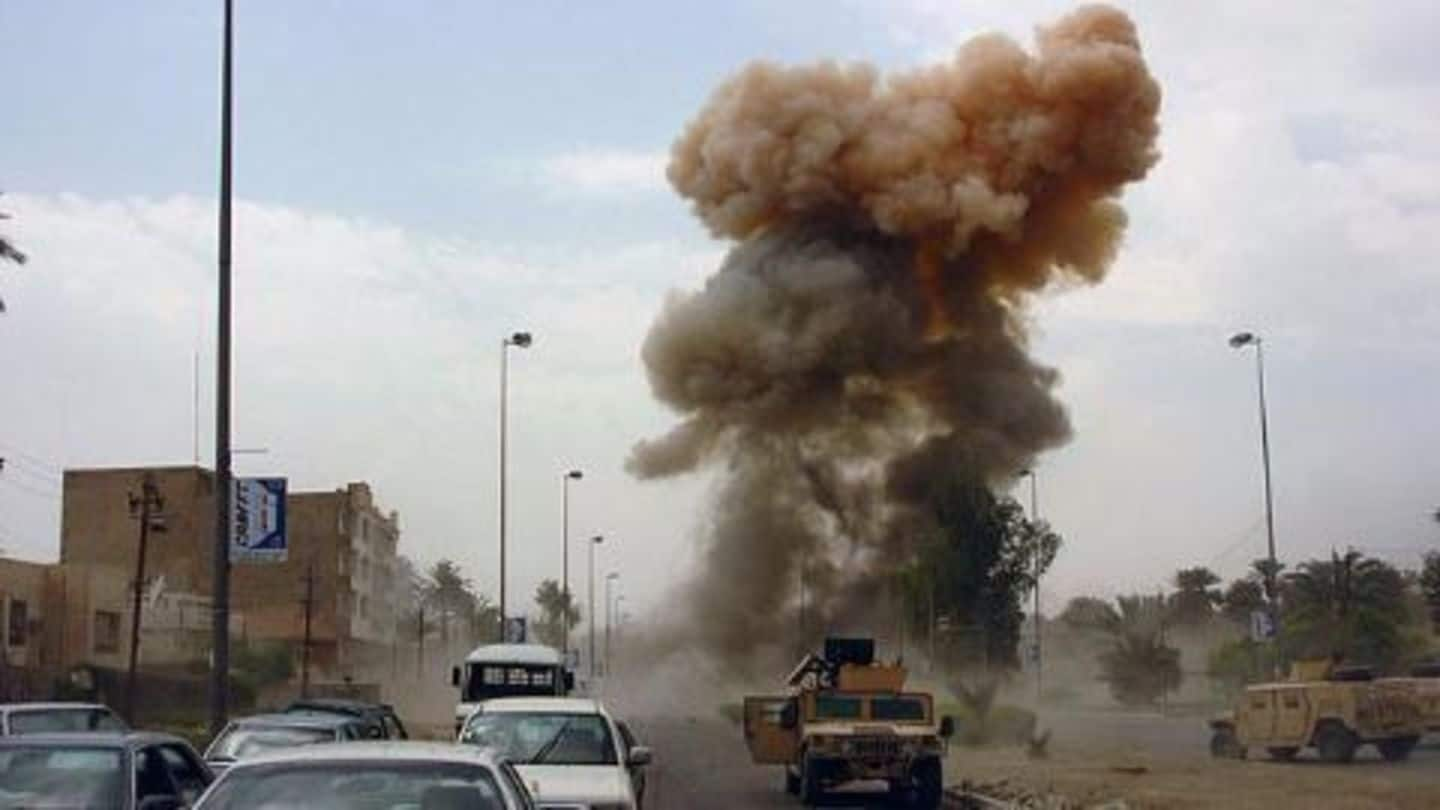
Syria accuses Turkey, Qatar and Saudi for bombings
What's the story
The Syrian government blamed Turkey, Qatar and Saudi Arabia for the deadly bombings in the coastal cities of Tartous and Jableh. In its letter to the UN, Syrian Foreign and Expatriates Ministry asserted that the "bombings constitute a serious escalation by the extremist and malicious regimes of Riyadh, Ankara, and Doha." The Minstry added that they were aimed at derailing the Geneva (peace) talks.
Information
The Syrian Civil War
The Syrian Civil War is an ongoing multisided armed conflict which began in March 2011, as pro-democracy protests against President Bashar al-Assad's regime. The conflict now escalated into an armed rebellion acquiring sectarian overtones, fuelled by a fundamentalist insurgency by ISIS.
22 May 2016
Multiple blasts in Syria kill nearly 150 people
A series of car and suicide bombings rocked two government strongholds on Syria's Mediterranean coast. Blasts in the pro-government citites of Jableh and Tartous killed nearly 150 people and wounded at least 200. They were the first of their kind targeting civilians in those areas in the course of Syria's civil war. The targets included bus stations, a gas station and a hospital.
Responsibility
IS behind the attack
The Islamic State claimed the bombings through its news agency Amaq where it said jihadists had targeted "Alawite gatherings", in Tartus and Jableh. Amaq,which routinely carries the group's news and claims, had offered no other details IS, which controls large parts of northern and eastern Syria, carried out suicide bombings in the capital Damascus and the western city of Homs earlier this year.
Information
Who are Alawites?
Alawites are a Muslim minority group that identify themselves as Shiite Muslims. Alawis account for 10% to 15% of Syria's population. They are concentrated mainly on the country's Mediterranean coast, in the port towns of Latakia and Tartous. President Bashar Assad is an Alawite.
23 May 2016
Russia stresses on peace talks
Russia expressed concern at the blasts and said they underscored the need to revive the UN-led peace talks between the government and opposition. The peace talks broke down in April amid mounting violence, leading to a collapse of the ceasefire. Russian President Vladimir Putin reiterated his readiness to fight with the Syrian government against "the terrorist threat" and sent his condolences to Assad.
Information
Geneva peace talks and ceasefire
The UN started formal peace talks to end the Syrian conflict on 1 Feb 2016, only to suspend them on 3 Feb. The talks resumed mid-April and will likely happen again in May.
24 May 2016
UN Secretary-General condemns the blasts
UN Secretary-General Ban Ki- moon condemned the terrorist attacks that claimed the lives of civilians in Syria. He reiterated his call on all parties to the Syrian conflict to refrain from attacks on the civilian population, saying that "those perpetrating such attacks must be held accountable for their crimes." Ban called on all member states to take decisive action to end the Syrian conflict.